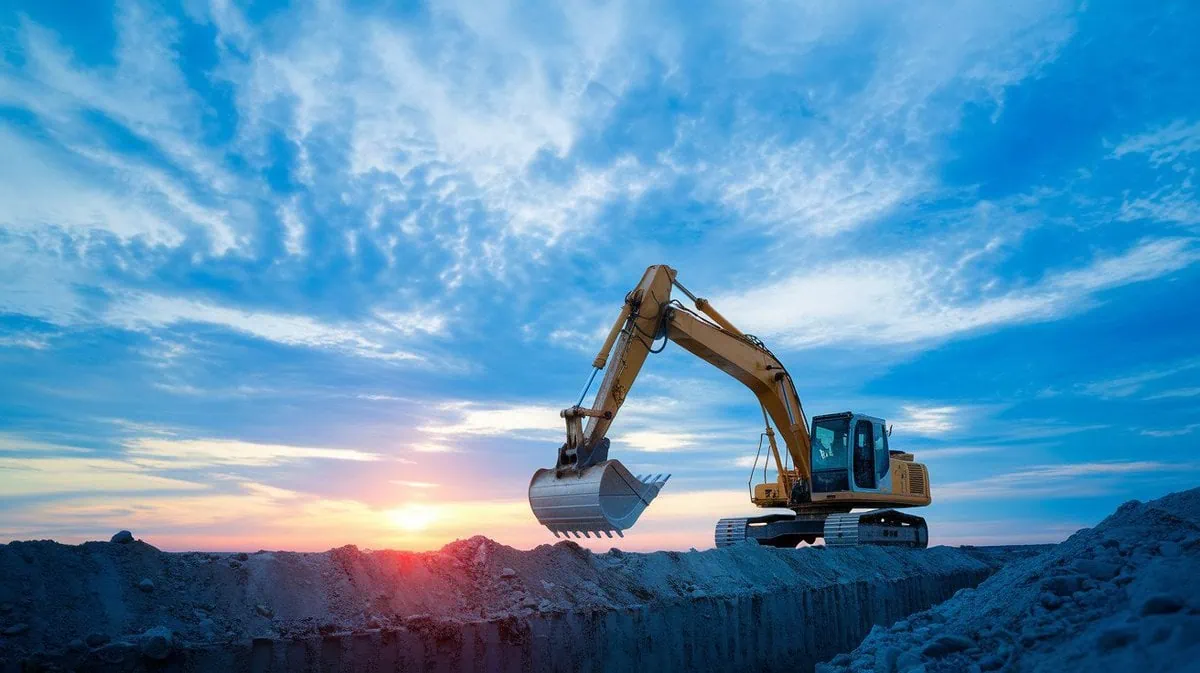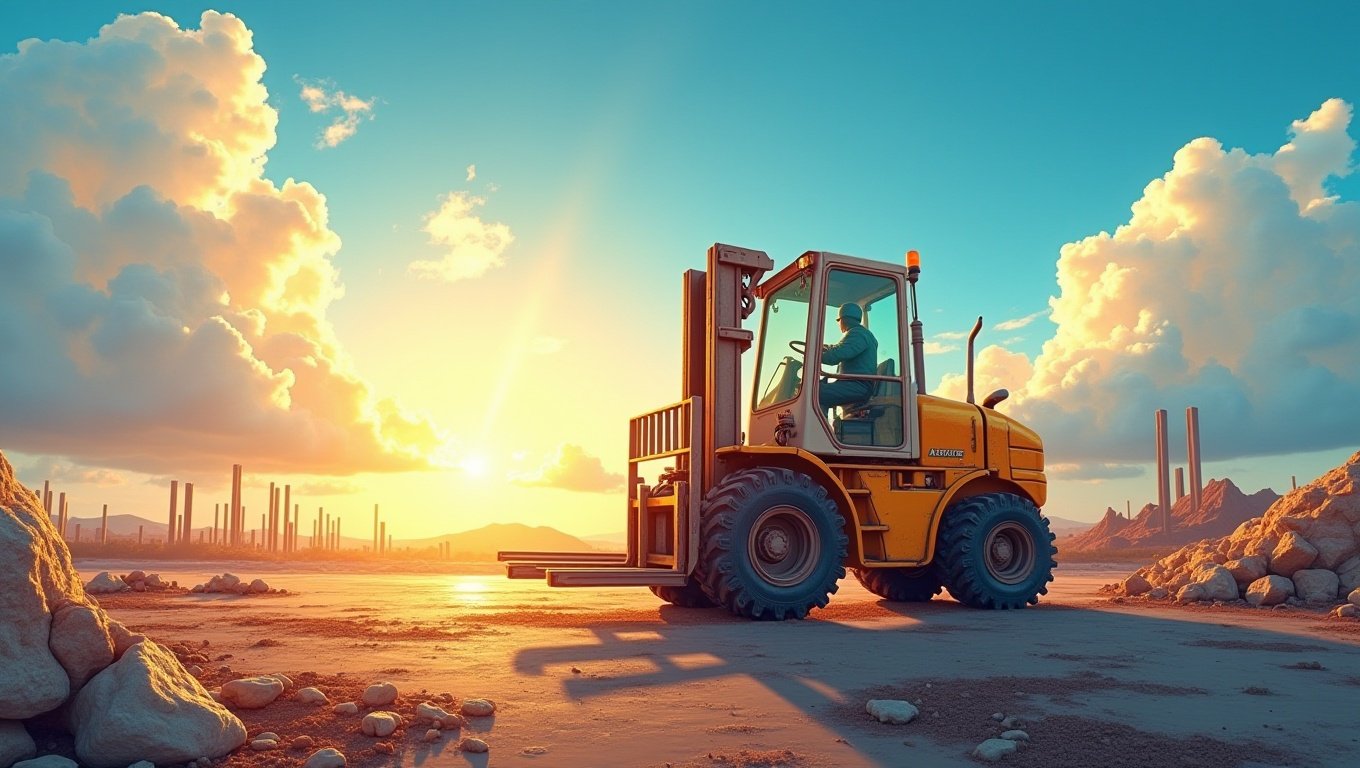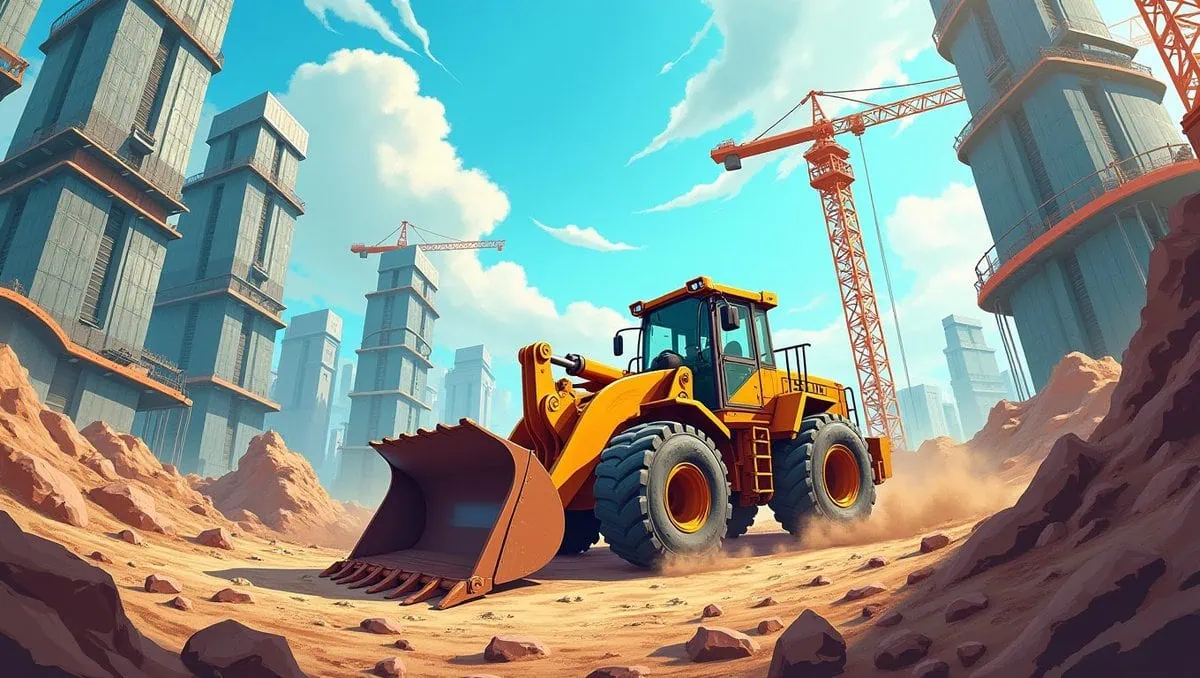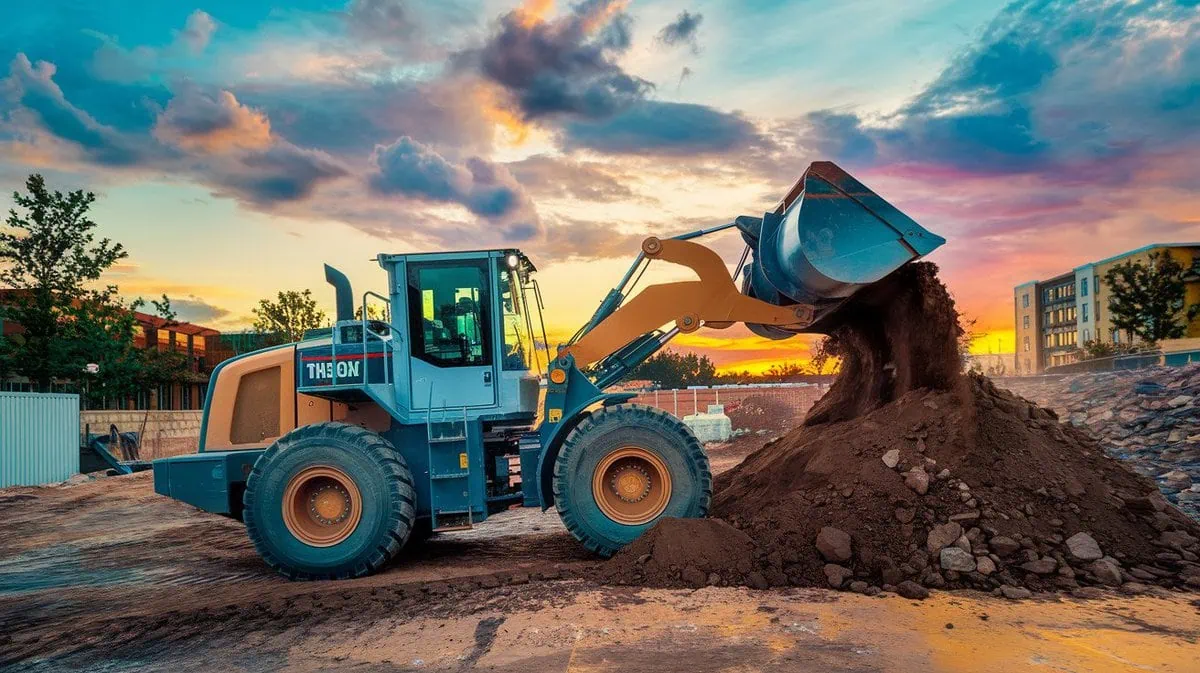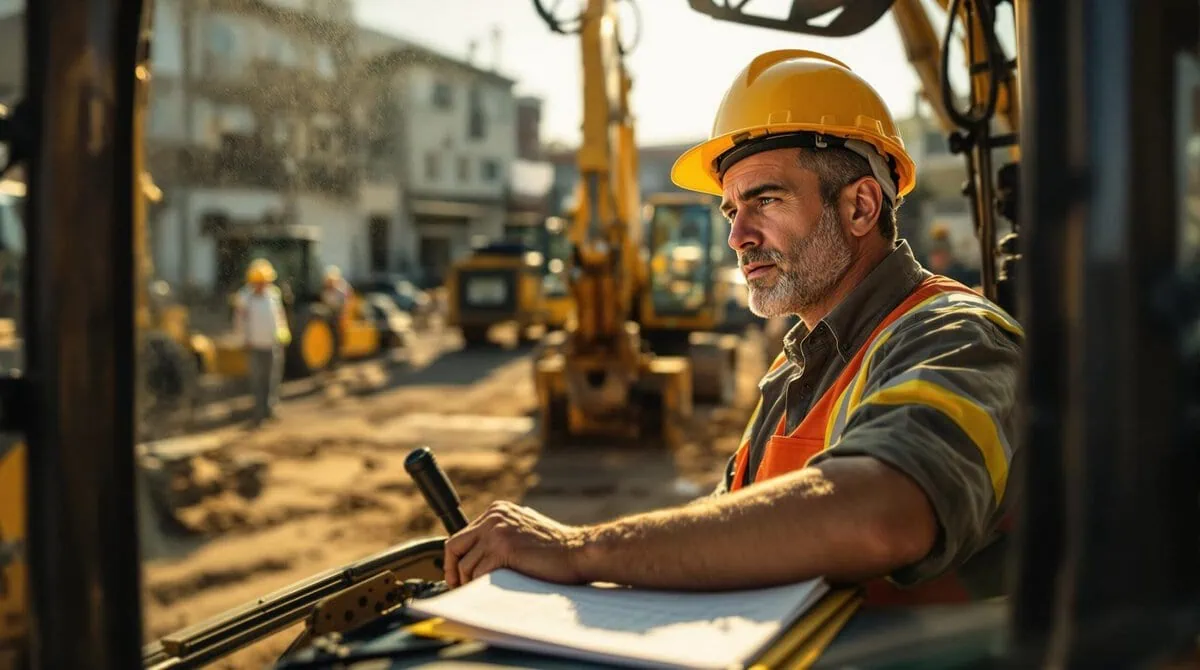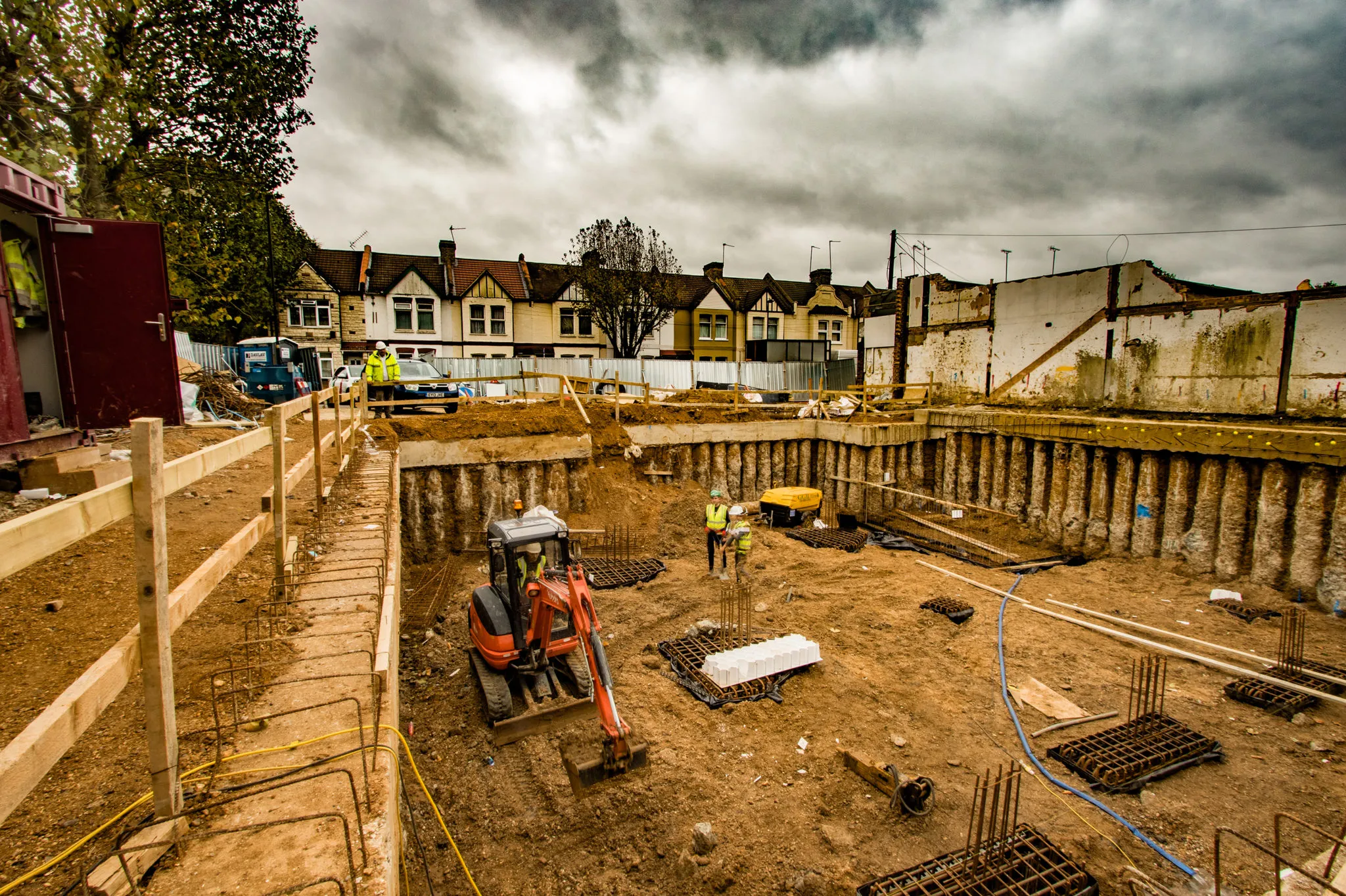Backhoe vs excavator are excellent options for trenching or selecting up large items. They are portable and versatile since you can drive one machine to and from the job or use a trailer to transport it easily. Their small size makes them useful in areas where there isn’t a lot of space or overhead clearance. Excavators are larger and more powerful than backhoes. Their size and power mean they can tackle big jobs faster. They typically have more reach, and they can handle heavy loads but require more experience to operate. Deciding between a pelle rétro vs pelle will come down to what you need to do on the job. Choose the one that does it better.
Le pelle rétro vs pelle debate hinges on project requirements like size, scope, and terrain. A backhoe is ideal for smaller, more versatile tasks, while an excavator is built for heavy-duty, large-scale projects. By understanding their differences, you can choose the right machine for your next construction project.
Now that we’ve set the stage, let’s take a closer look at what each machine is designed to do and how their capabilities match up with different types of construction tasks.

1,What Is a Backhoe?
A backhoe is a multi-function machine on the construction site. It’s a tractor. It’s a loader. It’s an excavator…all in one. The front end of the machine has a bucket (or shovel), which is excellent for picking things up and loading. The back end of the machine has a digging arm and an attached digging bucket. It’s excellent for digging a trench to bury utility pipes, to cut a section of hillside off, or to dig a hole for a septic tank or foundation.
Because they’re small and compact in size, they’re versatile for small projects, quick to load onto a trailer, and pull to and from the job. The small size also makes them ideal for urban areas or where there are space and overhead clearance limitations between pelle rétro vs pelle.
The backhoe is a highly versatile piece of machinery with a front loader for material handling and a rear digging arm for excavation tasks. Its compact design makes it perfect for projects in smaller spaces.
Backhoes are ideal for projects that require a combination of digging, lifting, and loading. Common tasks include trenching for utilities, small excavation jobs, landscaping, and even light demolition. Due to their size and flexibility, backhoes are often used in urban areas, where space is limited and maneuverability is crucial. Their ability to switch between tasks—loading, lifting, digging—within one machine adds to their appeal for those working on small residential or commercial construction sites.
For example, if you’re building a small foundation or trenching for a drainage system, the backhoe provides the versatility needed to perform all these tasks efficiently without requiring multiple machines. With the ability to work in tight spaces and on various terrains, backhoes make a strong case for smaller projects that demand flexibility.

2,What Is a Excavator?
Excavators are larger and more powerful than a backhoe, often used for bigger jobs. Because of their size and power, an excavator is much more expensive to buy or rent. However, they can tackle big jobs faster. An excavator typically has more reach and can handle heavier loads than a backhoe. They can perform heavy excavation work for a new basement or swimming pool area. They are also a popular choice for contractors while they’re landscaping a new building, or expanding a parking lot or arking area.
On the other hand, a multiple-head excavator is more costly and demands a more experienced operator. Now, that you know the differences between a backhoe and an excavator; deciding between the two will be simpler. Remember, the backhoe vs excavator decision depends on what you want to do on the job. Choose the right machine for the job that does it better.
An excavator is a large and powerful machine designed for deep excavation and large-scale earth-moving tasks. Its long arm and large bucket make it ideal for heavy-duty projects.
Excavators excel at large, heavy-duty tasks where deep digging is required. Whether you’re building highways, clearing land, or digging foundations, the excavator’s size and strength make it the preferred tool. The versatility of an excavator is enhanced by the wide variety of attachments available, such as hydraulic hammers, augers, and grapples, which allow it to tackle different types of work beyond standard digging. The machine’s extended reach and power are ideal for working in tough terrains where large amounts of earth need to be moved efficiently.
Additionally, excavators are highly suited for tough, large-scale tasks where precision and efficiency are paramount. If you need to excavate large areas, or handle deep and complex digging operations, an excavator is your best choice. Its power and reach make it indispensable for large construction projects that demand speed and high efficiency.

3,Key Differences Between Backhoe vs Excavator
Le pelle rétro vs pelle comparison largely revolves around size, capability, and operational efficiency. While both machines are designed to dig and move earth, their specifications differ significantly. Backhoes are smaller, more versatile, and ideal for tight spaces, while excavators are larger, more powerful, and built for heavy-duty work.
Backhoes are smaller and more versatile, perfect for smaller-scale tasks, while excavators offer higher power and deeper digging capabilities for larger, more demanding projects.
When comparing pelle rétro vs pelle, the biggest difference comes down to the size and power of the machines. A backhoe is compact and multifunctional, with the ability to switch between digging, lifting, and loading materials. It’s a go+od fit for residential or small-scale commercial construction projects, where space limitations and project variety are common.
For big jobs, you need the best tool for the job. A backhoe loader is a smaller multi-function piece of equipment, while an excavator is the big digger for big jobs. Excavators have a long extended arm and a healthy engine. The heavy construction equipment with the excavator are designed for a long reach and short dig. Those are used for infrastructure tasks like laying sewer pipe, digging out a new parking lot, to work a giant hole in the ground for a new commercial building. If the operator is experienced, an excavator can dig much faster and more efficiently than a backhoe can dig.
Understanding the key differences between backhoe vs excavator will help you assess your project’s needs. If you’re looking for flexibility and maneuverability, the backhoe is your best bet. However, for large-scale operations requiring deep and efficient excavation, an excavator is the superior choice in backhoe vs excavator.

4,When to Use a Backhoe in Your Project?
Backhoes are ideal for tasks that involve light to medium-duty excavation. They’re most effective when you need to work in smaller, confined areas where maneuverability is key. If you’re digging shallow trenches, handling small amounts of earth, or performing multiple tasks on a site, a backhoe is a versatile and cost-effective choice. Their ability to easily transition between tasks like digging, lifting, and loading materials makes them highly efficient for smaller-scale projects.
Backhoes are the go-to choice for light to medium excavation tasks, especially in confined areas. They are perfect for small-scale projects like trenching, landscaping, and material handling.
Backhoes are perfect for residential construction, utility work, and projets d'aménagement paysager in pelle rétro vs pelle. For example, if you’re installing a septic system or laying down water pipes, a backhoe provides the necessary power for trenching without taking up too much space. Additionally, backhoes are great for smaller earthworks like grading, leveling, and removing debris. They are also frequently used in areas where there’s limited access, such as urban construction sites.
The right équipement de construction will help ensure your project is a success without any overspending, wasted time, or fighting with the rented machinery. Whether you choose a backhoe vs excavator can make or break your project, affecting how long it takes you to finish, how much it will cost, and how efficiently you can finish the job.

Backhoe vs excavator features:
- a tractor, loader, and excavator all combined into one multi-function machine
- a front bucket for picking up, loading, and lifting dirt or material
- a rear digging arm for trenching and digging
- small, versatile, and easy to use in tight urban spaces or small job sites
- best for small jobs such as trenching, grading a driveway, or picking up and loading material into a dump truck
- easier to move or trailer
Excavator:
- BIG, heavy, and powerful machinery
- designed to dig deep and move a lot of heavy stuff
- consists of a boom, a stick, and a bucket to reach deep and move stuff
- ideally suited for use in big jobs like digging foundations for a new building, clearing land for a new road, or mining out a slab
- more expensive to buy or rent
- require the most knowledgeable operator because of its size and complexity to run one
- more suitable for larger jobs where speed and capacity count
You’re going to choose a backhoe for the small jobs, and the excavator for the big jobs. Once you see where each one excels, you’ll know which one to rent or move for your project.
5,When to Use an Excavator in Your Project?
Excavatrices are the best option for large, heavy-duty tasks. They are built to handle deep digging, large-scale earth-moving, and tough conditions. If you’re working on a major construction project, roadwork, or mining, an excavator is designed to dig deeper and move more material than a backhoe can manage. Its size and strength make it the best tool for projects where precision and efficiency in large-scale excavation are critical.
Excavators are ideal for heavy-duty excavation tasks requiring deep digging and large-scale earth-moving. For large construction projects, mining, or land clearing, an excavator is your best option.
Excavators are built for large-scale operations where depth and efficiency matter. For instance, if you’re digging a foundation for a multi-story building, an excavator can handle the deep excavation required, while a backhoe would struggle to reach those depths. Excavators are also commonly used in road construction, where moving large volumes of earth is essential. Their powerful digging arms and large buckets can clear vast areas quickly, making them essential for time-sensitive projects.
In addition, excavators are perfect for land clearing and forestry projects. With their ability to attach different tools, excavators can tackle even the most difficult terrains, clearing large swaths of land, uprooting trees, and removing boulders. If your project involves major excavation work, an excavator will ensure the job is done efficiently and effectively.

6,Cost Comparison: Backhoe vs Excavator
When considering the cost of renting or purchasing a pelle rétro vs pelle, the backhoe is typically the more affordable choice. Its smaller size, simpler design, and versatility make it less expensive upfront and easier to maintain. Excavators, on the other hand, come with a higher purchase price, higher fuel consumption, and greater maintenance costs due to their size and power. However, if you’re working on large-scale projects, the excavator’s ability to move more earth and perform deeper digging may make it a better long-term investment.
Backhoes have a lower upfront cost and are easier to maintain, but excavators offer greater capacity for large projects. While backhoes are more affordable, excavators provide a better return on investment for large-scale operations.
When deciding between pelle rétro vs pelle, cost is an important factor, especially if you’re on a budget. Backhoes typically have lower initial purchase prices and require less maintenance, making them a cost-effective choice for smaller projects. However, for large-scale construction projects or operations that require significant excavation power, the higher investment in an excavator may pay off in the long run. The excavator’s efficiency, power, and capability to handle larger workloads can ultimately save you time and money, especially on big projects where you need to move large amounts of earth quickly.
For contractors, considering both the upfront cost and long-term return on investment is key. While backhoes may be sufficient for light excavation, the added power and efficiency of an excavator can lead to better productivity and fewer delays for large jobs. By choosing the right machine for your needs, you can ensure your project stays within budget without sacrificing quality or efficiency.

7,Is a Backhoe Better than a Mini Excavator?
While both a backhoe and a mini pelle serve similar purposes, the decision ultimately depends on the specific requirements of your project. Backhoes are better suited for small, multi-functional tasks, whereas Mini excavatrices are ideal for confined spaces where more precise digging is needed. Mini excavators are smaller and offer excellent maneuverability, but backhoes are more versatile in terms of switching between tasks.
If your project requires precise digging in tight spaces, a mini excavator may be the better choice. However, for versatility and the ability to handle multiple tasks, a backhoe is the way to go.
A mini excavator offers the benefit of greater precision in small, confined spaces. They are commonly used in urban environments or residential projects where the digging needs to be controlled. Mini excavators are typically lightweight, allowing them to navigate smaller pathways and perform more precise digging than a backhoe. They are ideal for tight spaces where maneuverability is key.
On the other hand, if your project requires switching between multiple tasks, such as digging, lifting, and loading materials, a backhoe is the better option. Its ability to perform various functions makes it more versatile for smaller projects, although it won’t be as effective as a mini excavator in terms of precision or deep digging.

8,Backhoe vs Excavator: Which is Better for Landscaping?
In contrast, excavators are for the big, heavy stuff. They are larger and more powerful when you have to do deep digging, move a ton of dirt, and work in extremely tough ground conditions. If you’re working on a big construction project, building a road, or mining out on a slab, you need the excavator. It can dig deeper and move more stuff than a backhoe. The size and power of the excavator make it the best tool for a project where you need pinpoint accuracy, now, and on a large scale excavation project.
For general landscaping, backhoes offer versatility and precision, making them ideal for digging and moving soil. Excavators are better suited for tasks like land clearing and heavy material handling. This also is difference bewteen pelle rétro vs pelle.
When it comes to landscaping, both machines can be useful, but the choice depends on the specific tasks you need to complete. Backhoes are ideal for tasks like digging trenches, moving soil, and lifting light materials. They are also highly versatile, capable of performing various landscaping tasks without needing multiple machines.
For larger projets d'aménagement paysager, such as clearing large tracts of land or digging deep holes for pools or fountains, an excavator is the best choice. Excavators can tackle these heavy-duty tasks more efficiently, digging deeper and moving more material than backhoes can handle. Whether it’s for clearing a forest area or digging a large pond, an excavator’s power and capability will make the job easier.

Summary: Backhoe vs Excavator
Both the pelle rétro vs pelle have their distinct advantages depending on your project needs. If you’re working in a confined space and need a versatile machine, a backhoe may be the best choice for its flexibility and affordability. However, for large-scale projects that require heavy-duty digging and earth-moving, an excavator is the superior option, offering power, efficiency, and the ability to handle more demanding tasks.
Ultimately the choice between a backhoe Vs excavator comes down to the size of the job, location, track or wheels, budget, and what you need it to do on the job. When you have to do trenching or digging, a backhoe may be your best choice. When you have a more giant job, an excavator may be what you need. A backhoe is a multi-function machine and an excavator is a single-purpose machine. Choose the machine that excels in the type of work you plan to do on your job.

